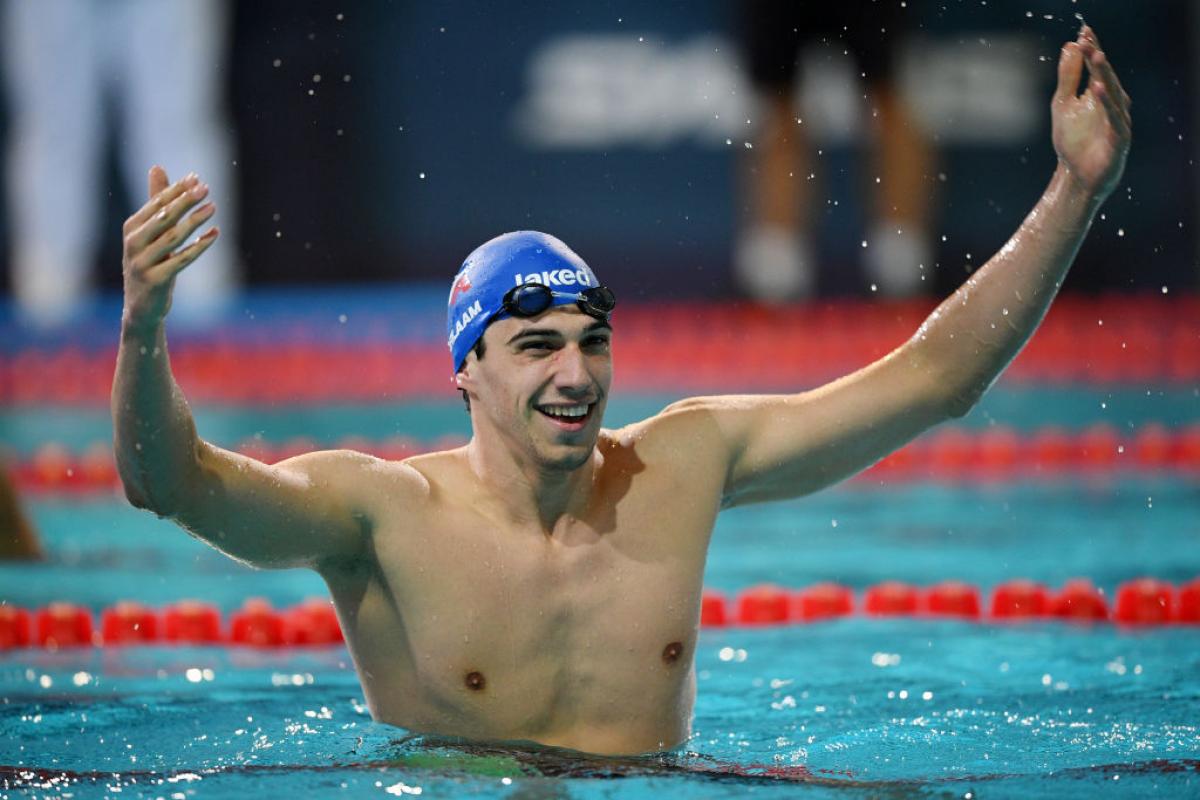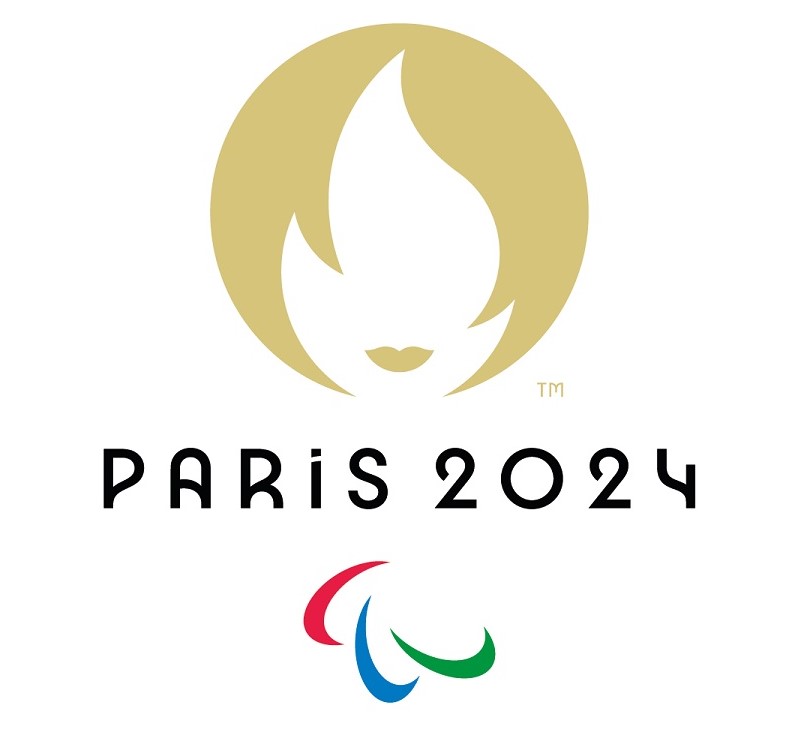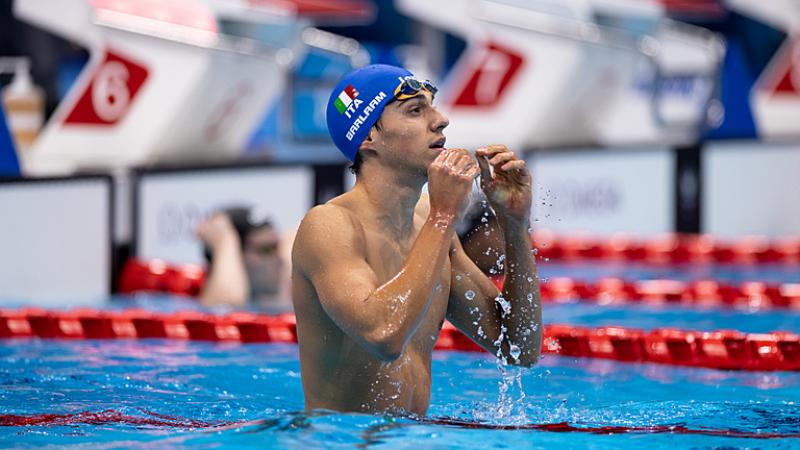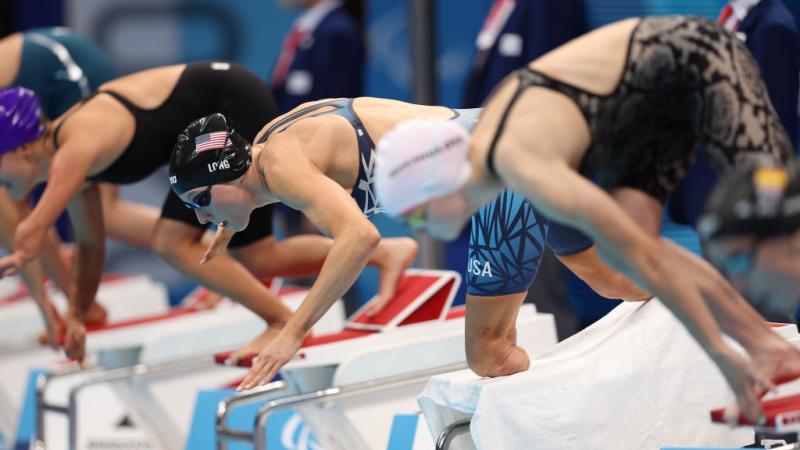Paris 2024: Italy's Para swimming star Barlaam focused on having fun at Paralympics
Italian Para swimming sensation Simone Barlaam says his main goal at the Paris 2024 Paralympics is to “enjoy the experience” of competing at the Games 05 Jun 2024
Italy’s Simone Barlaam is one of the biggest stars in Para swimming, winning 18 World Championship golds and four medals at the Tokyo 2020 Paralympic Games. Barlaam says his journey will come full circle at the Paris 2024 Paralympics in France, where he underwent surgeries on his right leg during his childhood.
With less than 100 days to go until Paris 2024, we caught up with Barlaam, who is determined to enjoy his latest Paralympic experience in a city he owes a lot to.
How did you start competitive Para swimming?
It was amazing. I was 14, and I got into this group with athletes who were training for the Rio 2016 Paralympics. I thought they were extraordinary and thanks to them I got into sport knowing I could do something with my disability. Then, once I got more and more into the sport, I never stopped being amazed. I discovered incredible athletes who could do mind-blowing things.
What does Para swimming mean to you?
I’ve always loved the water. On land, I felt like a fish out of water; in the water I felt agile, light. That sense of freedom is one of the things and I still love about swimming. It gave me a big part of my life, because most of my friends, my relationships. The person I am today is thanks to swimming, and the people I met through swimming. I owe a lot to the sport.
Talking about your childhood, when did you first become aware of your disability?
I realised quite early on, I guess, around the first few years of primary school. When I was a kid I had a different kind of prosthetic leg, it was bigger, a bit different to my peers, and putting my pants and trousers on was different.
While my friends were running around and playing, I either had to go to France or somewhere for an operation or I was in a wheelchair.
I realised I had something different, but I was lucky and brave enough to not let that stop me. Most of the kids I grew up with treated me in a completely normal way and my leg was just a part of me as a human being, something you can joke about just as you would with any other thing with your friends. I was lucky compared to a lot of people [with disabilities] who struggled more with bullies.
What can you remember about your first big international event in Para swimming?
It was a meeting in Berlin in 2016. It was amazing seeing these people from all over the world competing at the same time in the same sport. I was surprised and fascinated by it. The 2017 World Championships in Mexico [where I won two golds] was a complex experience because there was an earthquake. But at the London 2019 World Para Swimming Championships, people told me stories about the London 2012 Paralympics and the emotion of the crowd, so being there in that legendary venue was quite special. Seeing all those young schoolkids watching us compete was very heartwarming and important for them as well.
Simone, where did you learn to speak such good English?
I always wanted to do Year 11 of high school abroad to improve my English and my Italian swimming coach knew a few people in Australia, so I found a second home on the other side of the world. It taught me a lot, made me open to new experiences … and I hope I speak understandable English. There was a point where I even started to have a few dreams in English but when I met my Australian friends a few years ago, they were like ‘where’s your Australian accent?!’ I guess my accent is a bit neutral now.
Can you tell us about the Tokyo 2020 Paralympics? What impact did the Covid-19 pandemic and subsequent postponement have on your preparations?
It had a big impact – more on my mental health than my preparations. I became a bit of a hypochondriac, cut off all the relationships with my friends and my family, didn’t see anyone because I was afraid to test positive. As a consequence, it was not possible to ‘live’. My head just wasn’t there and I got some complexities with food and stuff.
It was probably the toughest time of my life and I had to face a lot of inner demons. But that made me grow – I had to work on myself in the years after. If you’re well trained but not ready mentally, you’re just a fast car with no pilot. That was a tough time, but very important for who I am today.
How do you reflect on winning one gold but missing out on several others at the Tokyo 2020 Paralympics?
More than that I think about the Simone that could have enjoyed the experience more. Even in a few warm-ups I was almost sick of entering the pool. I didn’t like swimming, like I was about to quit. Of the course, it was a pretty different Paralympic Games because of Covid. No crowds, the silence of that gigantic pool made your thoughts even louder. For Paris, my main goal – my only goal, I guess – is to enjoy the experience more.
Looking back, that’s my only regret from Tokyo. Of course, they were not the best performances of my life but I wasn’t the best person. I was thinking more about the results than the process – and as a consequence I didn’t do as well as I expected or hoped.
And how different are you now as a Para swimmer and a person?
I take myself less seriously. I don’t go crazy if training or a race doesn’t go well. That new mindset is helping me. Enjoying daily life and not going crazy if one night I sleep six hours instead of eight or on the weekend have a burger or a pizza with my friends. Train hard, go to training but enjoy the process.
How do you feel about returning to Paris for the Paralympics? Will you visit the hospital where, as a child, you say doctors performed ‘a miracle’ on your leg?
It feels like my journey is coming full circle. It’s going to be surreal because I spent many years of my childhood there, and it’s a city that I really love and that I’m really close to. Being back there competing will be very special. I have visited the hospital when I visited Paris a few years ago, but I couldn’t see the doctors because one of them was busy and one has retired, so I will try to catch up with them.
How much are you looking forward to competing in front of fans at the Paralympics for the first time?
A lot. To finally feel the real Paralympic experience on my skin, with crowds, where you don’t have to think about Covid tests - I can’t wait. It will be a spectacular event, and being back in Europe, it’s going to be easier for my family and friends to be there. It’s going to be special.
What is your goal at the Paris 2024 Paralympics?
A medal is not entirely ‘your result’ but a consequence of many factors; of the people next to you, how you wake up that day… so your performance is all you can really control. If your best corresponds to a medal, that’s good. If somebody else is better than you, you can’t do anything except shake their hand.
You will be 24 by the time Paris 2024 comes around. What does the future hold?
I hope that Paris will not be my last Games. It’s too early to say, but if we’re talking about things coming full circle, 2032 could be another that closes itself with the Games being in Australia (where he spent a year studying). I will try to get there, but it’s very far ahead.
Book your tickets for the Paralympic Games by visiting the Paris 2024 ticketing website

 Facebook
Facebook
 Instagram
Instagram
 Twitter
Twitter
 Youtube
Youtube
 TikTok
TikTok
 Newsletter Subscribe
Newsletter Subscribe








